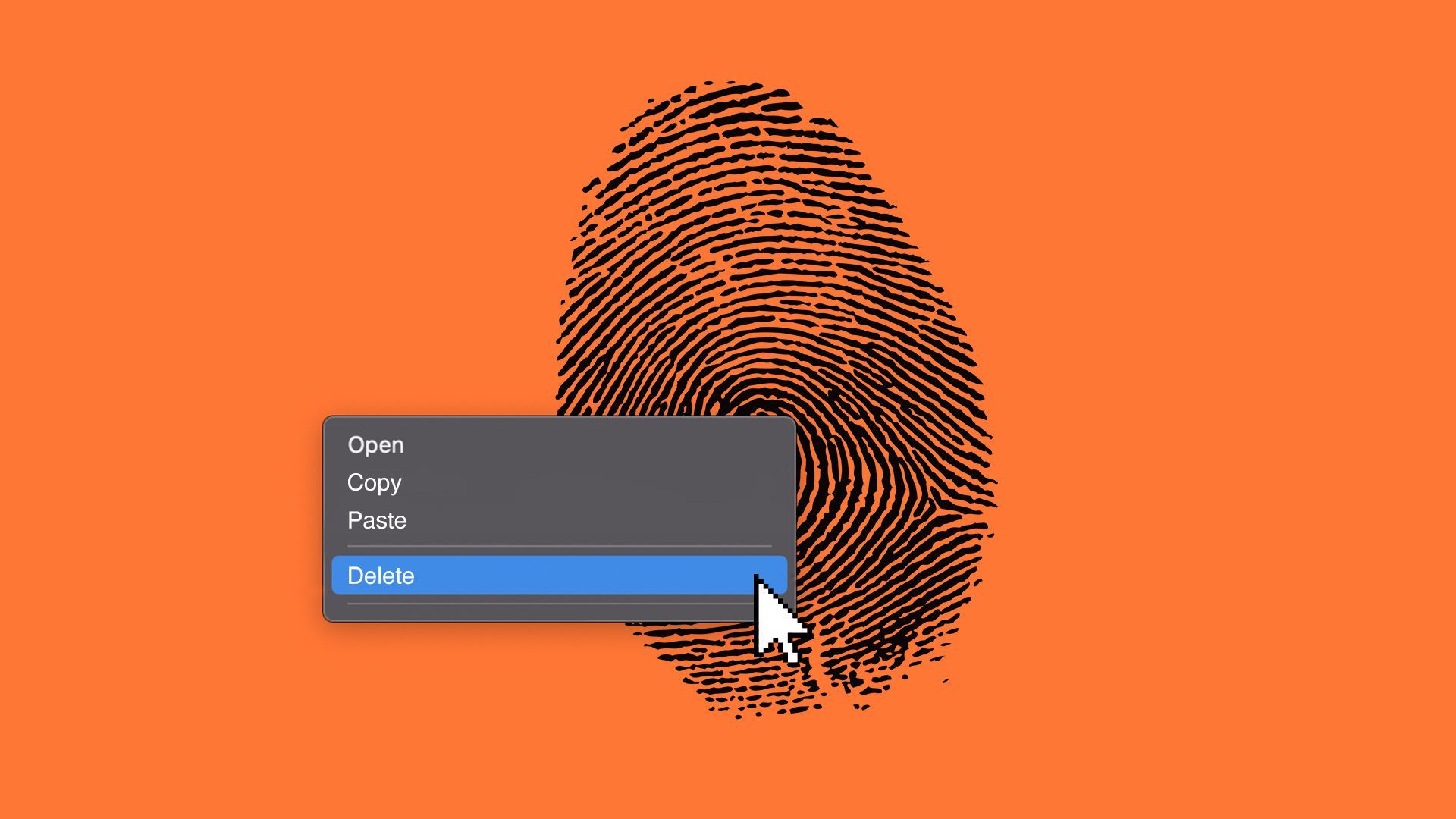America gets a clean record
Add Axios as your preferred source to
see more of our stories on Google.

Illustration: Aïda Amer/Axios
Red and blue states across the country are leaning on technologists to help automatically clear eligible criminal records as a way to expand the workforce.
Why it matters: Criminal records are a barrier for employment and housing, but clearing them can be a costly and time consuming process, and millions of eligible Americans don't even try.
The big picture: One in three Americans has a criminal record — such as an arrest that never led to a conviction —that would appear on a background check for housing or employment, according to the Clean Slate Initiative.
- States have existing mechanisms for expunging or sealing records, but the petition process can be costly and confusing, with Code for America estimating that only a fraction of the people eligible pursue that process.
- Code for America technologists worked with Utah to implement its clean slate law, clearing the records of 500,000 eligible residents in February.
- Pennsylvania passed the first Clean Slate law in 2018, and Michigan, Delaware and Connecticut are among the states working to implement new automatic record clearance laws.
- Eligibility varies on a state by state level, but generally includes non-violent offenses.
What's happening: New York, Colorado and Oklahoma are the latest states to advance legislation that would automate the process for sealing or expunging records.
- The Colorado state Senate measure would expand the state's automatic record sealing program for non-violent offenses.
- In Oklahoma, the state House recently passed a bill that would require the state to identify eligible records for expungement on a monthly basis, and if there are no objections from law enforcement, automatically expunge the records.
Details: Expungement fairs in Oklahoma draw hundreds of people desperate for help navigating the petition-based system, Republican Rep. Nicole Miller, who sponsored the bill, told Axios.
- The state's criminal justice reform efforts included a mass commutation of more than 500 inmates' sentences in 2019, but did not expunge all those people's records.
- “It's very important that we finish what we have started there, and that we give these people the tools that they need and the resources they need to get back into the workforce,” Miller said.
What they're saying: "On a very basic level, it's taking that burden away from a person having to navigate the system and putting that work on the government," Alia Toran-Burrell, associate director of Code for America's Clear My Record program, told Axios.
- "So the government is now identifying who's eligible, they are taking the necessary steps to update those systems and clear it so that when somebody goes to apply for housing or jobs, that record is no longer a barrier."
Between the lines: The efforts are picking up steam during a labor shortage that's left many businesses scrambling to find workers.
- "It's important to realize this is a workforce development issue," Miller said. "We're looking for people to fill so many roles, not only in Oklahoma, but across the nation. I don't think that there's any better time to be doing this."
What's next: The Clean Slate Initiative in March received a $15 million donation from philanthropist MacKenzie Scott to expand its work.
- The organization has coalitions in 12 states, executive director Sheena Meade told Axios.
- "The area that we want to do more in and go deeper in is our work in racial equity outcomes," Meade said. "We know Black and brown people are overly impacted by the criminal justice system, and I want to make sure they get the opportunities that are provided by clean records."
